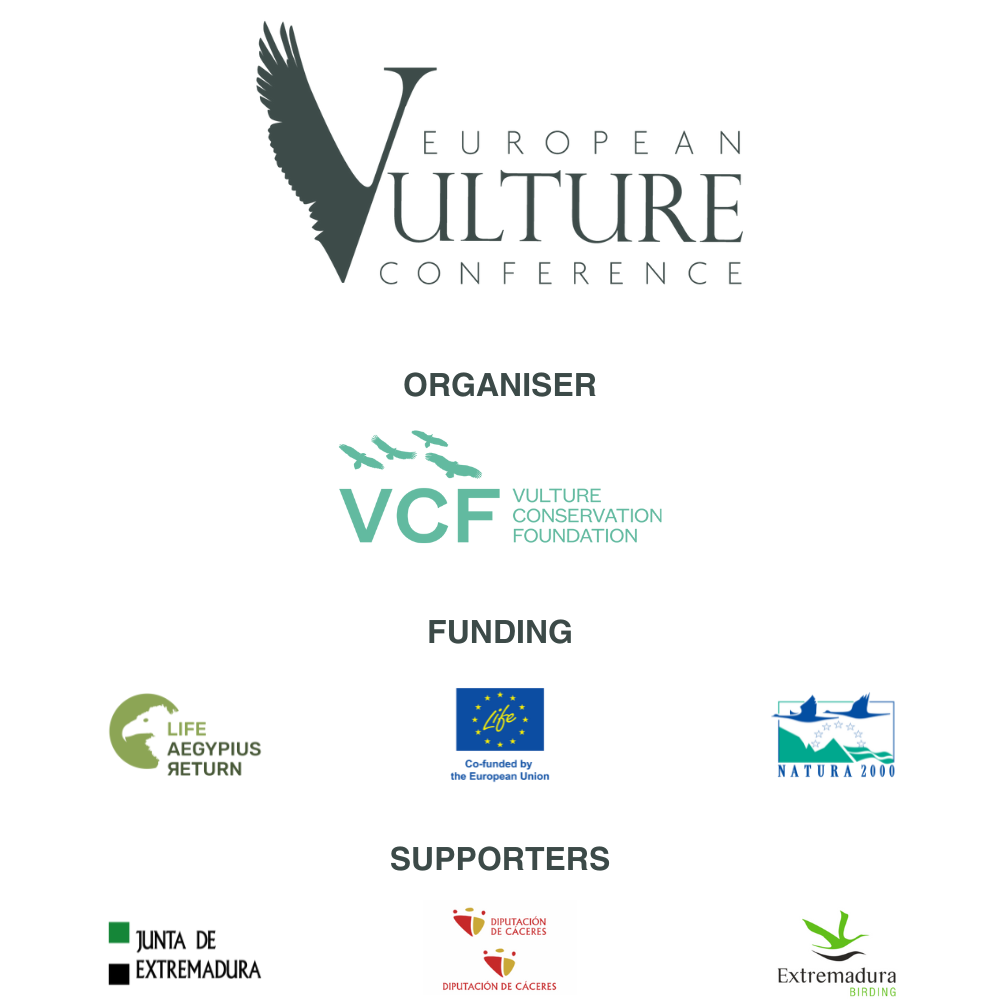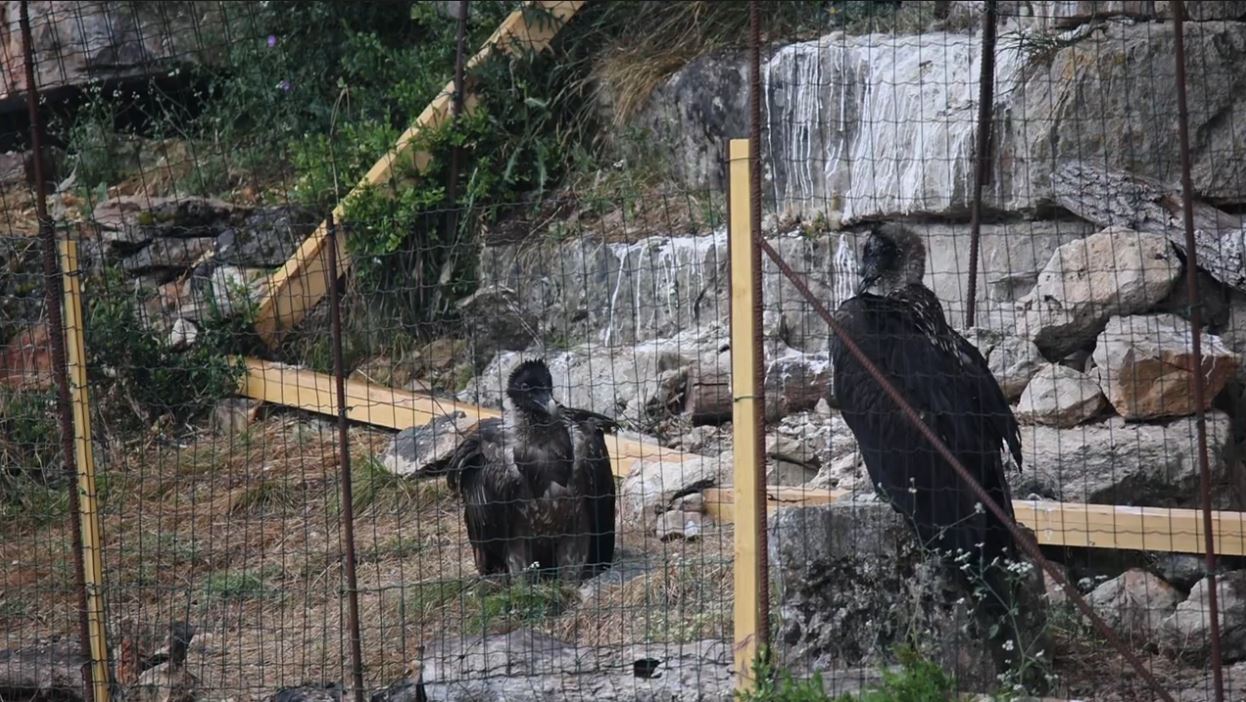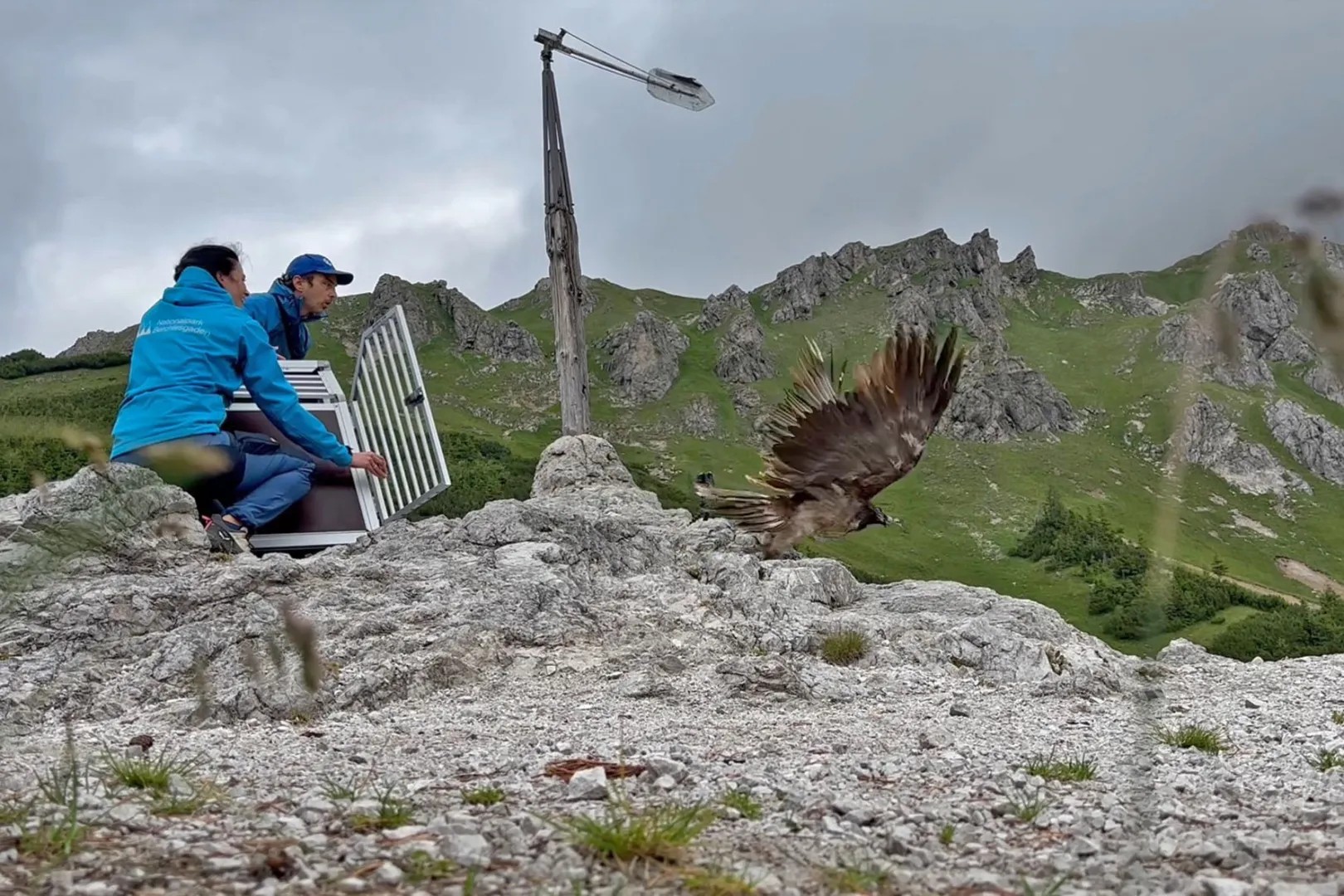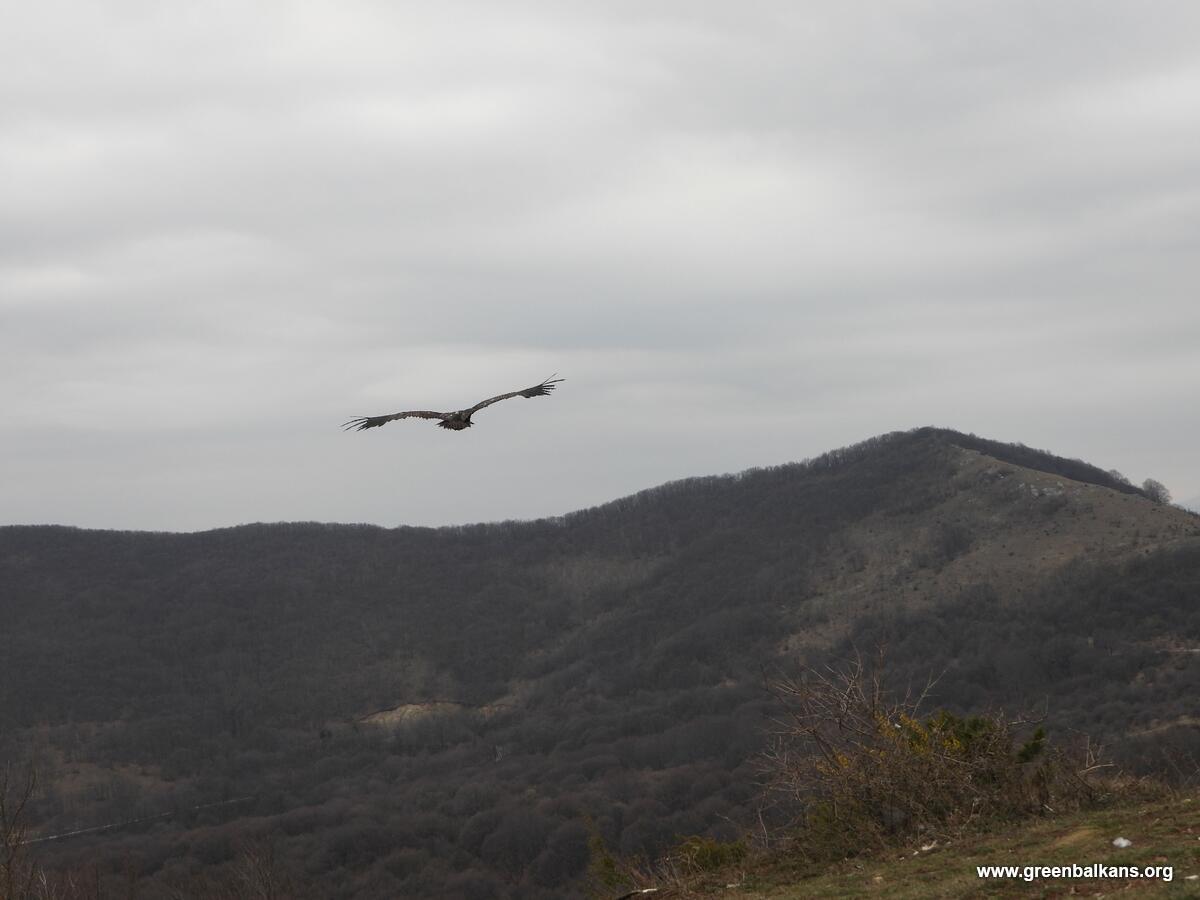Join us in Cáceres (Spain) between 14 and 17 November 2023 for the European Vulture Conference (EVC), where conservation science experts from across the globe come together to shape the future of vultures. The EVC provides a unique opportunity for collaboration and knowledge exchange. Explore cutting-edge scientific advancements, engage in dynamic discussions and share results and research findings with your peers!
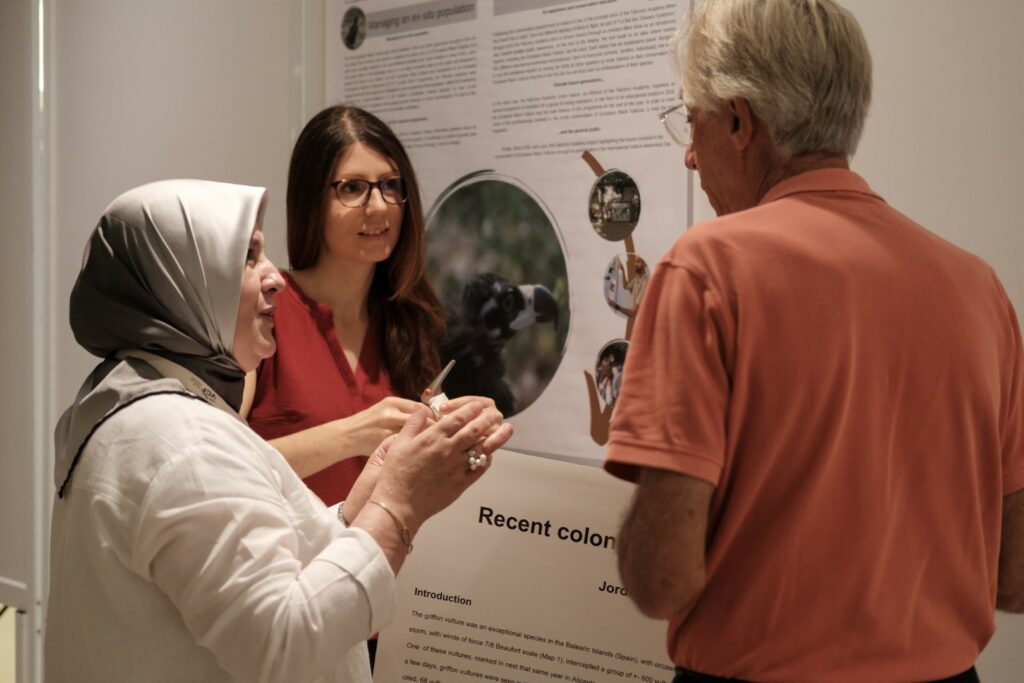
What you can expect at the European Vulture Conference 2023
Linking scientific research with conservation actions is one of the main aims of the European Vulture Conference. With a highly diverse programme, including keynote presentations, speed talks and posters, we will cover the most pressuring questions and effective vulture conservation strategies. Keynote speakers will shed light on monitoring and movement ecology, threat mitigation for effective planning and implementation, methodologies and results of reintroduction projects, disease prevention and control, and captive-breeding husbandry. In addition, the workshops will provide opportunities for you to focus on specific topics and further discuss them with relevant experts.
Advancing the science of reintroduction biology
Vultures play a vital role in maintaining healthy and functional ecosystems. However, vulture populations worldwide have experienced significant population declines due to many human-induced threats. Restoring and strengthening wild vulture populations that are under significant pressure or locally extinct is pivotal to securing their future.
Bearded Vultures included in the restocking and reintroduction efforts are bred in captivity, by many EAZA members, within the Bearded Vulture Captive Breeding Network. The network consists of over 40 zoos, specialised breeding centres and private collections and is coordinated by the Vulture Conservation Foundation (VCF) on behalf of EAZA’s Ex Situ Programme (Bearded Vulture EEP). Experts set breeding priorities and produce a plan for the future management of the species and define the allocation of chicks to the different release areas based on precise demographic and genetic analyses of the captive population. Researchers within the network are also developing responses to tackle the threat of emerging diseases such as the West Nile Virus and Avian Flu.

Studbooks that record all data on hatchings, deaths and transfers of birds are also carried out for specific species, as well as guidelines for husbandry practices to ensure the best health and welfare conditions for captive birds. For instance, a group of experts within the Cinereous Vulture EEP produced a comprehensive document with essential practical guidelines to encourage and promote the highest possible standards for the husbandry of this species in captivity.
This type of data collected on captive-bred birds allows scientists to assess post-release demographic parameters of reintroduced individuals and, thus, to better understand how captive breeding might affect fitness. The ultimate objective is to improve, if needed, husbandry practices in order to optimise reintroduction success.
Are you involved in vulture conservation or research projects? Submit your abstract to share your work and results at the European Vulture Conference 2023.
Monitoring movements and survival
As part of ongoing conservation projects, an increasing number of vultures (including captive-bred or rehabilitated birds, but also wild-born individuals) are fitted with a lightweight GPS transmitter, enabling us to track their movement and see real-time location. The data received helps us to unravel the complex dynamics of the vulture’s movements, providing a valuable tool to study their dispersal patterns and identify critical habitats, migration corridors and priority areas for conservation actions. It also gives us an insight into the vultures’ health status, allowing us to act swiftly in case suspicious data is received.
Thanks to the increased monitoring efforts in the last decades, there are more vultures tagged, sending information fundamental to designing accurate conservation actions and mitigating threats in migration corridors or sensitive areas. The VCF produces tracking maps that are available for all European species and coordinates the IBM – International Bearded Vulture Monitoring Network, bridging scientific knowledge and data analysis into conservation actions implemented across Europe.

Linking scientific research to conservation action
Another important research area focuses on understanding mortality causes to act upon, including poisoning, one of the major threats to vultures in Europe and worldwide. Necropsies and blood analyses play an essential role in identifying the toxic substances responsible for mortality cases.
Tackling this threat requires collaborative efforts between researchers and conservation practitioners, who can work directly on awareness-raising with specific groups, such as hunters or farmers, and build the capacity of local authorities to fight illegal poisoning.
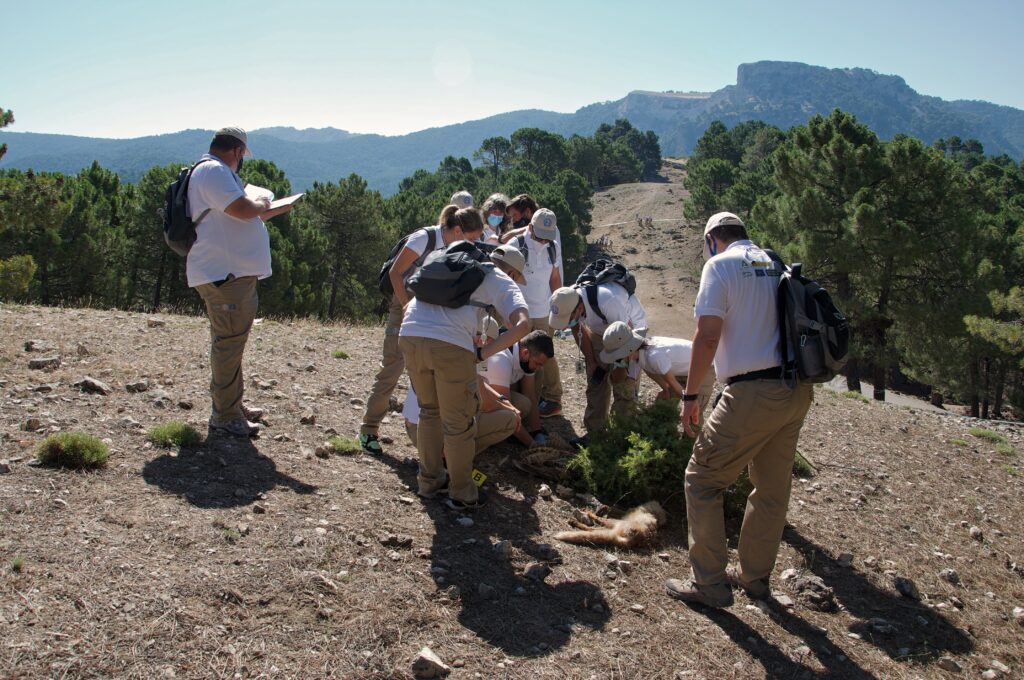
From groundbreaking research findings to emergent conservation methods and technologies, the EVC showcases the best vulture science in Europe and beyond. It is also an excellent opportunity for early career researchers and conservationists to deepen their knowledge and establish new contacts in the vulture world. And there is even a special discounted price for students!
The European Vulture Conference 2023
The European Vulture Conference 2023 is returning and will be held in Cáceres, Spain, from 14 to 17 November 2023. This event is the ultimate gathering for vulture conservationists, researchers and enthusiasts alike. It presents an unparalleled opportunity to collaborate with peers, hear from renowned experts and gain valuable insights into the latest advancements in vulture conservation and research across Europe and beyond.
Join us in advancing vulture conservation and research by submitting your abstract today by 18 June 2023.
The conference’s extensive and diverse programme features regular presentations, speed talks, and posters, providing a platform for presenting a wide range of works. Several workshops will offer focused discussions on specific research and conservation topics with relevant experts to advance vulture research and conservation efforts to the next level. Aside from the scientific programme, attendees can also enjoy cultural visits, a conference dinner, and field trips to explore the vulture-rich region of Extremadura.
Take advantage of the early-bird registration period before they expire on 31 July 2023 to secure discounted prices.
Keep yourself informed with the latest conference updates, and join the conversation by following us on Facebook, Instagram, LinkedIn and Twitter using the hashtag #Vultures2023.
The European Vulture Conference 2023 is organised by the Vulture Conservation Foundation within the framework of LIFE Aegypius Return, co-funded by the European Union’s LIFE Programme. It is also receiving significant support from the Junta de Extremadura, Diputación de Cáceres and Birding in Extremadura.
